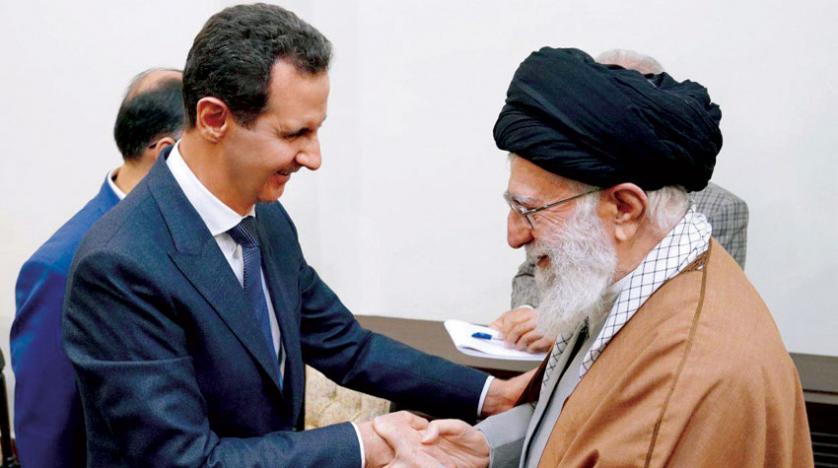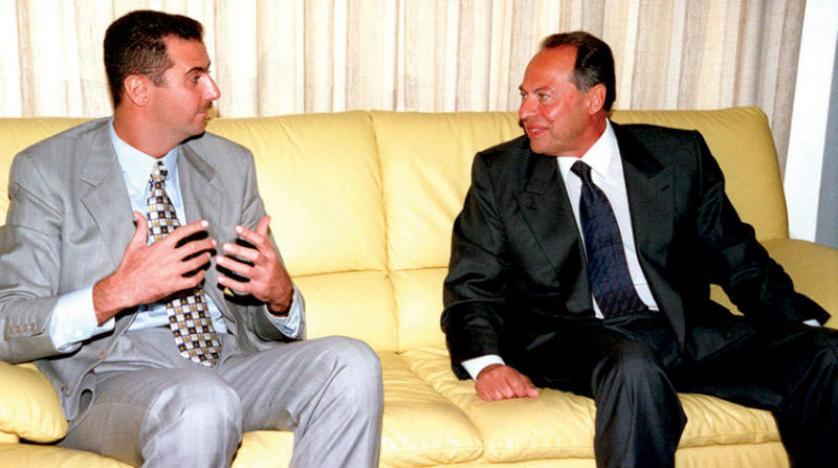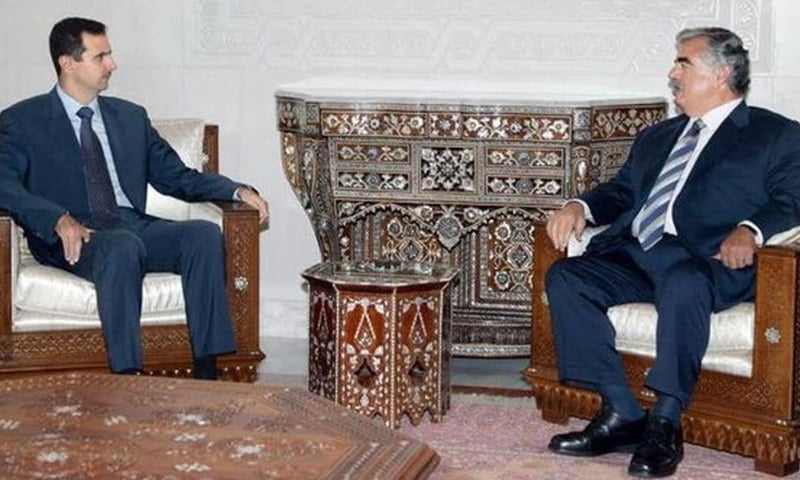The memoirs of the late Abdel Halim Khaddam, former Syrian Vice President under Hafez al-Assad, have revealed that Damascus and Tehran reached an agreement on the eve of the 2003 Iraq war to “prolong the war to make the Americans pay.” These revelations were published in Khaddam’s memoirs on Syria and its regional role by Asharq Al-Awsat newspaper.
According to Khaddam’s account, Syrian President Bashar Al-Assad, along with Iranian leader Ali Khamenei and former Iranian President Mohammad Khatami, agreed in Tehran prior to the American war on Iraq to “extend the war to incur costs on the Americans.” In the first episode of his memoirs, which focuses on the coordination between Damascus and Tehran before the 2003 war, Khaddam noted that Damascus shifted from working to overthrow former Iraqi President Saddam Hussein to defending him.
He further mentioned that former Prime Minister Mohammed Mustafa Miro visited Baghdad and delivered a speech expressing support, stating, “I offer you this Damascus sword,” emphasizing Syria’s solidarity and considering the aggression against Iraq as an aggression against Syria.
Khaddam pointed out that Iran, through its allies in the Iraqi opposition, was working to oust Saddam and his regime.
“In light of this reality, Assad went to Tehran to coordinate and unify positions in response to new and concerning developments in the region,” Khaddam stated.
Based on the meeting minutes, Assad conveyed to Khatami that “if the United States settles in Iraq, it will then target Syria and Iran.” He also informed Khamenei that “in order to exhaust the Americans, the war in Iraq must be prolonged.”
One of the meeting minutes quoted Khatami as saying that “it is sufficient to return the bodies of American soldiers for (former American President George) Bush to lose.”
Assad commented, “If it were non-Americans fighting, the fall of Saddam would have been faster, but Americans are controlled by foolishness. They claimed they would resolve the war within days or weeks, needlessly restricting themselves to this timeframe.”
He added, “If we were to ask Iraqis, ‘Who do you hate more, America or Saddam?’ Some might say Saddam, but the sentiment is that the Iraqi people will fight alongside Saddam. So, I believe there are some Iraqis who lean towards one side, while others lean towards the other.”
Assad continued, “Another thing: Americans will kill a large number of Iraqis, and then people will forget that Saddam Hussein exists. As for the Republican Guard and the regime’s supporters, particularly the nearby Republican Guard, there are many political leaders and military personnel who can be categorized into two groups: those who benefit from the regime and those who have committed crimes and carried out executions. America’s folly will soon begin… It has left no escape for any of these individuals. They have compiled a list of 1,700 opponents who are prohibited from entering Iraq, and they speak of a military governor of Iraq. In reality, there will be a conflict, but within a few days, everyone will be against America.”
In response, Khatami stated, “All opposition today is against America. We should strive to bring together Shiites and Sunnis, encouraging them to overcome their differences.”
Assad returned to the conversation, saying, “We are the country that most stands with Saddam, yet he is the least cooperative country with us. It’s a strange system that exists in its own world. I used to talk before and express the need for increased internal participation. Currently, we have municipal elections in Syria, and on the plane, we were discussing how to expand this participation. However, Saddam Hussein is doing the opposite. Yesterday, Iraq was divided into four regions, and one area was handed over to Ali Hassan al-Majid, who is known as ‘the chemical.’ This will turn public sentiment against Saddam. As Syrians and Iranians, how do we engage with the opposition? It is necessary to accommodate the opposition abroad, but they cannot play a significant role. We need stronger relationships within Iraq. In Syria, our relationship is weak due to the lack of trust between our two regimes.”
Assad added, “This matter needs to be studied in detail, including names, because any council or person that comes to rule Iraq will be composed of these individuals. America rejected the proposal of an Arab country to replace Saddam with another person, Ezzat al-Douri. This is my perspective on this matter.”



